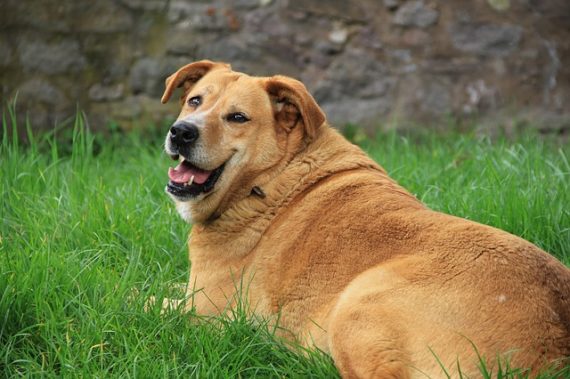How to help your dog to lose weight
 Everyone wants their dog to be healthy and happy. However, in the UK many dogs suffer with obesity. In fact some vets estimate that as many as half of the dogs that they have brought to them are medically overweight.
Everyone wants their dog to be healthy and happy. However, in the UK many dogs suffer with obesity. In fact some vets estimate that as many as half of the dogs that they have brought to them are medically overweight.
Just like with humans, the risks of obesity are very serious. All that extra weight can put unnecessary pressure on a dog’s body and can lead to diabetes, joint problems, and breathing difficulties and put strain on their vital organs.
Why do dogs become overweight?
While there are occasions where dogs have become overweight due to medical issues, the vast majority of obesity in dogs is a result of poor diet and over feeding. In fact snacking is one of the biggest offenders. While a cheeky sausage slipped from the dinner plate to your dog might seem harmless, overtime it can contribute to weight gain and according to the Blue Cross is the equivalent of a human eating one and a half bars of chocolate as a ‘snack’. Because of this it’s really important that you try and avoid allowing your dog to ‘Hoover’ around the dinner table. Even the occasional slip up will encourage your dog to repeat this behaviour. Try and change your dinner time habits and make sure that the rest of your family follows the rules too.
How to tell if your dog is overweight?
Every breed of dog is different and some dogs do naturally carry more weight and appear to be more bulky than others. A good way to tell is to see if you can easily feel your dogs rib-cage; if you can’t then your dog may well be overweight. If you’re still unsure then you should consult your vet for advice who will be able to tell you for sure if your dog needs to reduce their weight.
Losing weight
The saying “a six pack is made in the kitchen” is usually attributed to humans but it goes for dogs too. While you can increase physical activity for your dog by taking it for more walks and playing games, you really need to tackle diet to make the most impact on your dog’s belly. So cut out unhealthy treats and try and give your dog a balanced diet. This dog food calculator can help you to determine the best sized meal for your dog in accordance with its ideal weight: http://www.dogfoodadvisor.com/dog-feeding-tips/dog-food-calculator/.
For more information about our dog training classes, please visit https://www.witsend4pets.co.uk/, read our article “Dog training: what you need to know”, or call us on 0116 244 2455.